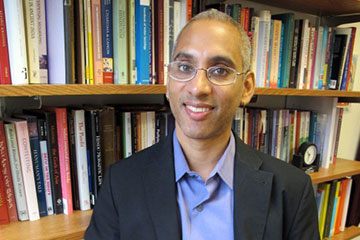Burnout Breakdown: Why Gen Z and Millennials Are Crashing Faster Than Ever, According to Religious Scholar Deepak Sarma

Burnout Hitting Younger Generations Earlier Than Ever
A groundbreaking new report reveals a concerning trend among Gen Z and Millennials: workplace and life stress are overwhelming young professionals at increasingly younger ages. According to Deepak Sarma, professor and Inaugural Distinguished Scholar in Public Humanities at the College of Arts and Sciences, peak burnout is now occurring around age 25 - significantly earlier than previous generations.
The research points to two primary culprits driving this early exhaustion: crushing student debt and intense societal pressure to achieve rapid professional success. Young adults are finding themselves caught in a high-stakes environment where career advancement and financial stability seem more challenging than ever before.
Sarma suggests that the combination of economic uncertainties, educational investments, and heightened expectations are creating a perfect storm of stress for younger workers. The traditional career trajectory has transformed, leaving many feeling overwhelmed and mentally depleted before they even reach their late twenties.
This emerging pattern of early burnout signals a critical need for workplace culture shifts, mental health support, and more sustainable professional development strategies that prioritize employee well-being.
